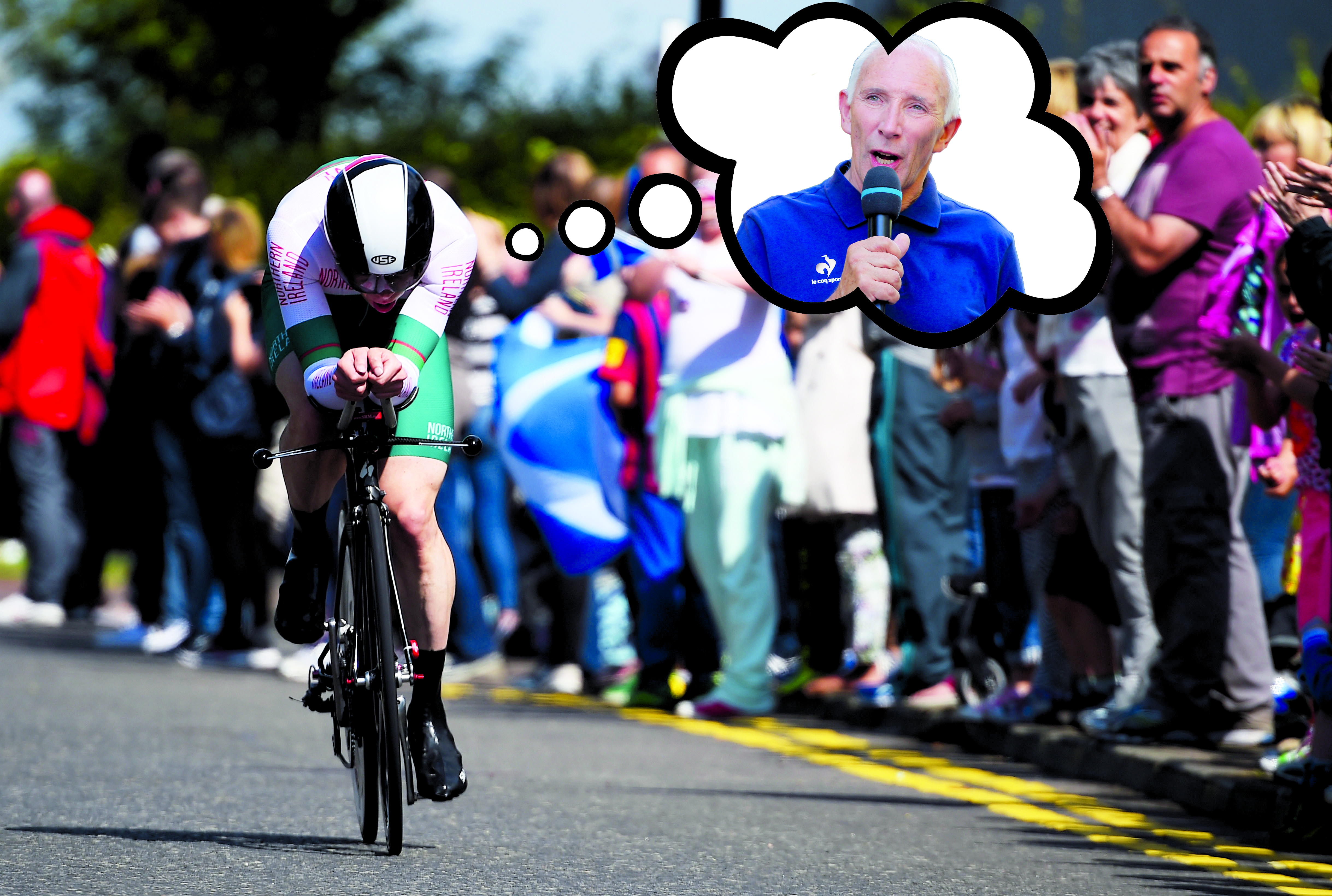
I have recently taken to using bone conduction headphones on training rides. I listen to podcasts, largely about history. This has had two effects. The first is a knowledge of history that is inextricably linked to local geography, as the things I’m listening to weld themselves to the things I’m looking at. For example, Marie Antoinette is now firmly associated with an industrial estate access road outside St. Neots in a way that I don’t think she’d have liked.
The second effect of the podcasts is that the new voices I have in my head have made me think about the voices that used to be in there instead.
I don’t think I’m alone in often having an internal monologue going on when I’m riding. It’s especially the case in races, where it’s an acknowledged part of sports psychology. You need to give yourself messages of positive reinforcement.
A sports psych I once worked with told me I should avoid self-talk like, “You can do this!” because that implicitly carries the message that maybe I can’t. I didn’t tell her that my internal monologue doesn’t beat about the bush with subliminal messaging – if my brain thinks the whole enterprise is doomed, it says things like, “This is hopeless, mate. Fake a puncture and let’s go home.”
It’s true, though, that if you get talking to yourself right, it can help. In recent years I’ve taken to the mantra of “the best you can be right now”. It’s a low bar, really, because in the heat of the moment it’s often the case that the best I can be isn’t all that good. But if your expectations are low, they’re a lot easier to live up to. “Best I can be right now? About 30kph.” “OK, it’s not much, but that’ll have to do.” It keeps you plodding along while you wait for the relief of either the finish line or the better legs, whichever arrives first.
That sort of self-talk itself replaced the previous version, the much more excitable one that came in the voice of commentator Phil Liggett. As a younger rider I don’t think I’m alone in having occasionally imagined commentary on what I was doing. When I let myself daydream I might have heard, “And it’s Hutchinson, showing the field what he’s made of… And the rest of them just don’t have an answer to that!”
As time passed, of course, a darker Liggett started to say other things. Things like, “Hutchinson isn’t the rider he was just a few weeks ago. This is embarrassing to watch, quite honestly.” Sometimes he’d get so bored watching me he’d talk about passing buildings and landmarks instead.
My mate Bernard, predictably, is not quite like anyone else. He swears his internal commentator has always spoken Italian. Bernie doesn’t speak Italian, but when he was young he spent so much time watching videos of Marco Pantani from Italian TV that he absorbed the soundtrack. Never was there a rider less like Pantani – but I still envy him a little.
This commentator is always, I think, the commentator of your youth. Sometimes things come full circle. Sir Bradley Wiggins’s internal voice was that of Hugh Porter. When Wiggins set his Hour Record in 2015 he asked that Porter commentate at the venue. I liked that.
Porter also commentated on me once. Again, he was the venue commentator. In the course of the race, I could clearly hear him. He said that my performance was rather disappointing, and read the results of the previous heat instead.
I’d had a lot of practice with Liggett, so I was fine with that.







